A friendly farrier: How Bill Spellman makes a living trimming, shoeing horse hooves
NORTH EAST ― The prospect of getting kicked or bitten might keep most people away.
For Bill Spellman, it's all part of the job.
Spellman, 40, has spent nearly 15 years as a farrier, trimming hooves and shoeing horses.
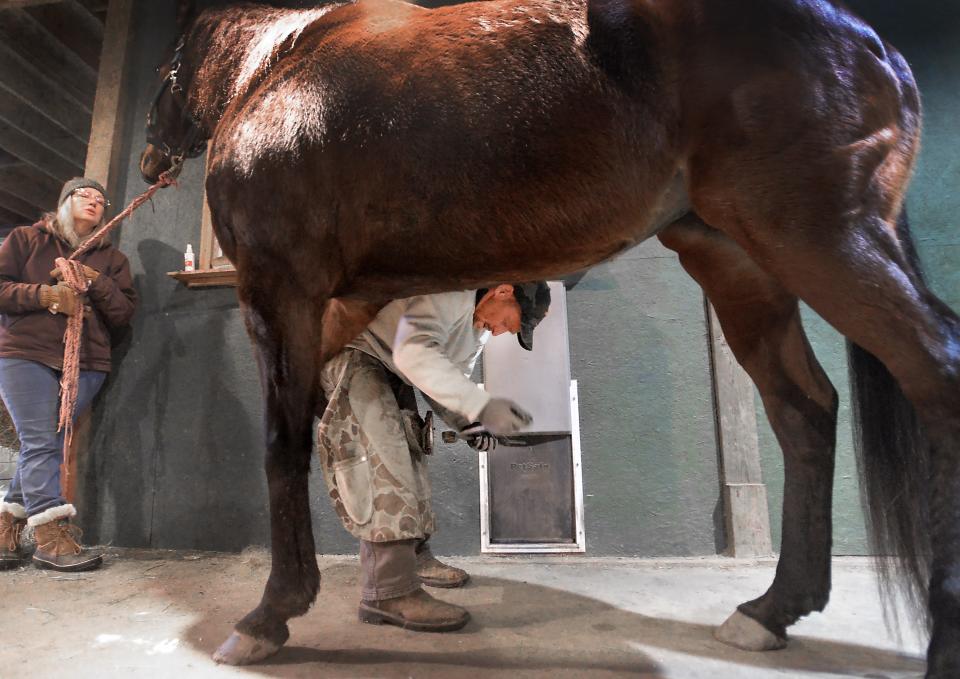
"I had horses and I didn’t want to pay the farrier, so I learned how to do it," the North East resident said.
Spellman apprenticed with Floyd Piazza, of North East, and Norman Metzler of Waterford. After two years, he decided to start his own business, Bill Spellman Farrier Services.
Related:Presque Isle Downs & Casino earns more racing revenue in 2022 despite fewer horses
"I wanted to try it myself and I felt like I had a good understanding," Spellman said. "I did a lot of research and realized I was kind of a natural at it."
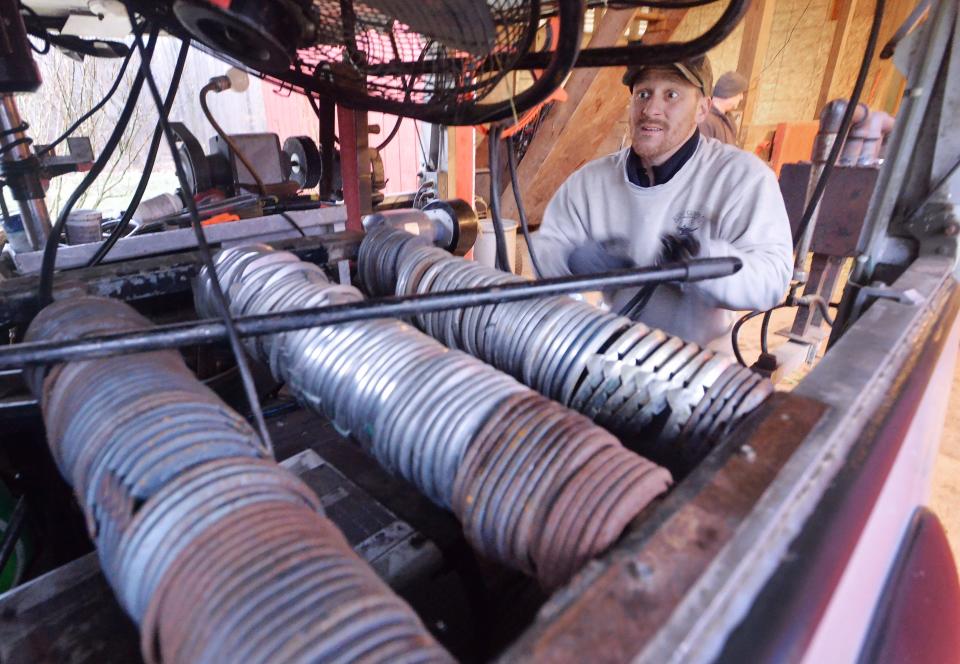
Creating loyal relationships with horses, owners
While apprenticeships built Spellman's farrier foundations, he's continued to gain experience through online clinics, YouTube and learning as he goes.
He services a variety of hooved animals, from English and western horse breeds to zebras, alpacas and pigs. Many of his clients come from northwestern Pennsylvania and western New York.
"In the summertime, when it’s super busy I’ll do four to five barns a day, between 10 to 20 horses a day," Spellman said. "I could probably do more, but I don’t want to blow my back out. How many millions do you need to make, you know?"
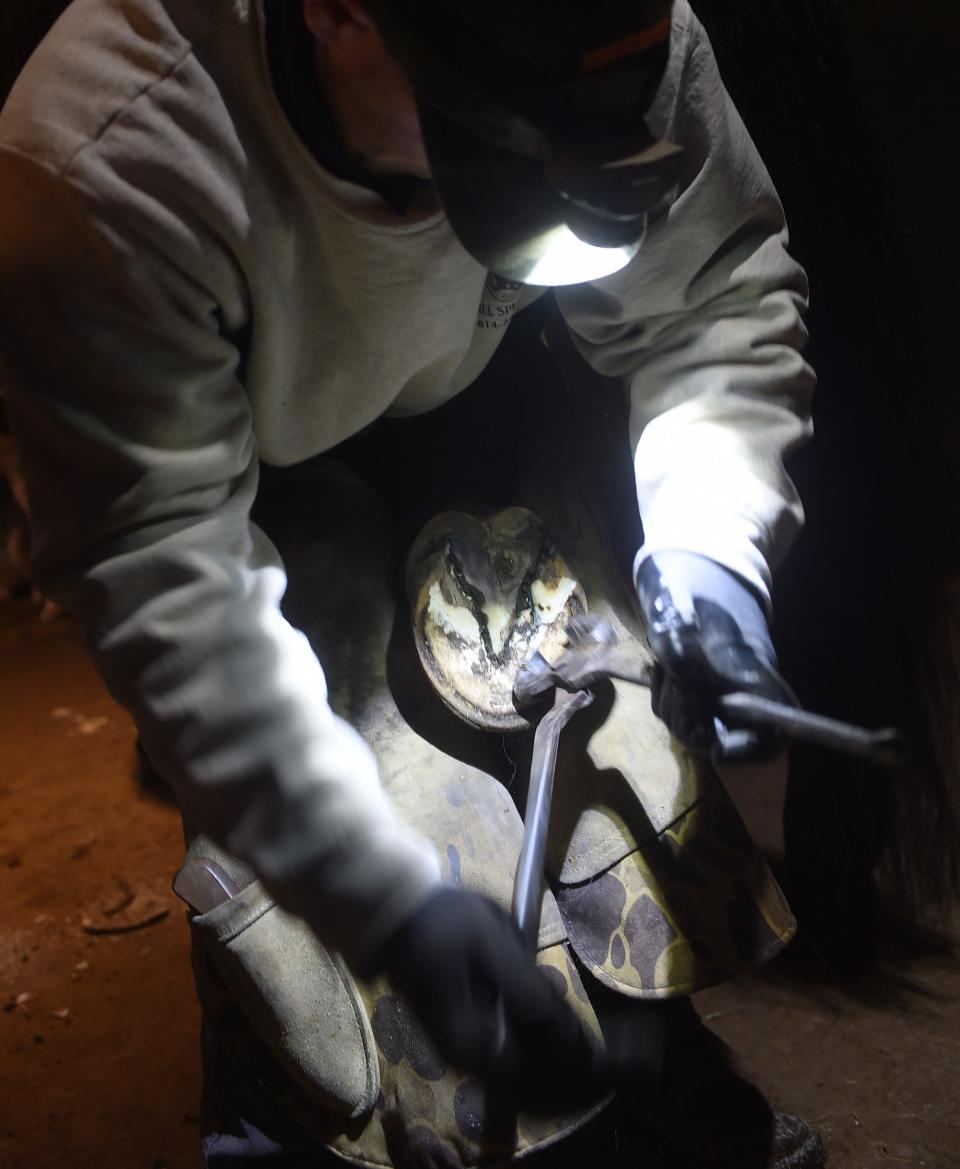
On Jan. 12, he made a routine visit to John and Kim Kelton's home in North East, where he trimmed and shoed Slew, an appendix quarter horse — a registered quarter horse crossed with a registered thoroughbred — and Ridge, an off-track thoroughbred.
Kim Kelton said Spellman makes a visit to her property every six or so weeks to trim her horse's hooves as well as fit Ridge for corrective shoes to help with the mare’s conformation flaw, which affects the position of its knees.
Related:Draft horses carried the load on Presque Isle in the early 1900s
“I was looking for someone that would look at Ridge and say, ‘She has a conformation flaw, I have this shoe and this would be really good for her and help her knees,’ and Bill did that,” Kim Kelton said.
Spellman made his way around Ridge with ease, first removing the mare's shoe and peeling away debris before going in with clippers. After smoothing down the hooves, Spellman fitted Ridge for her corrective snow shoes, which she'd only wear on her front hooves.
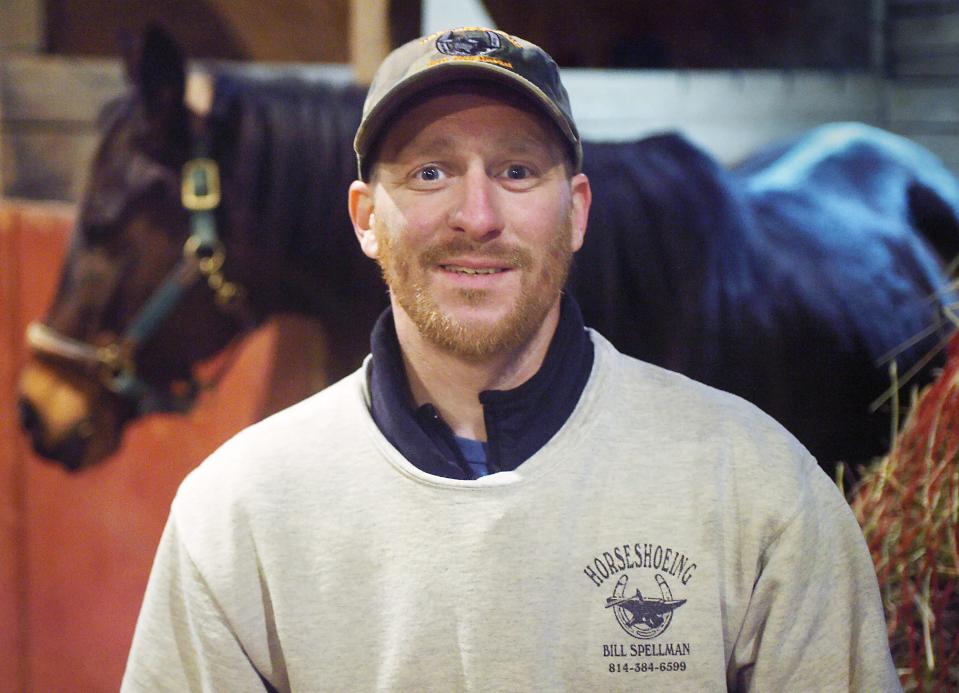
After hammering a shoe to size, Spellman cut corrective pads to match and sanded off excess leather before nailing the corrective shoe into Ridge's hoof. Spellman finished off the placement by applying a packing liquid between the shoe and the hoof to keep out debris.
“He just really gets along with them well,” Kim Kelton said. “For whatever reason, Slew would always pull away from the other farrier, and with Bill, he’s just real quick. People who are good with horses, they just go in there and they’re like, ‘This is how it is’, so Bill just does it and the horses are really good for him.”
Gaining new experiences one hoof at a time
Finding a farrier to address a horse's specific needs can be difficult.
"Nowadays, people are learning a lot more about the hoof and different things you can do so you’re not as limited to what you can fix," Spellman said. "A lot of people want to do it (become a farrier) and then they start to realize how challenging it is and they don’t make it very long. There’s so much to it."
Unlike others in the industry, Spellman did not receive a formal farrier education, but said a license is not required to become a farrier.
"Anyone wanting to be a farrier should definitely go to a farrier's school," Spellman said. "What I did to get into the business is not something most people do."
Related:Erie's Sydney Richmond has journeyed from child leukemia patient to equestrian champion
Spellman customized his truck to hold any equipment and tools he might need on the job.
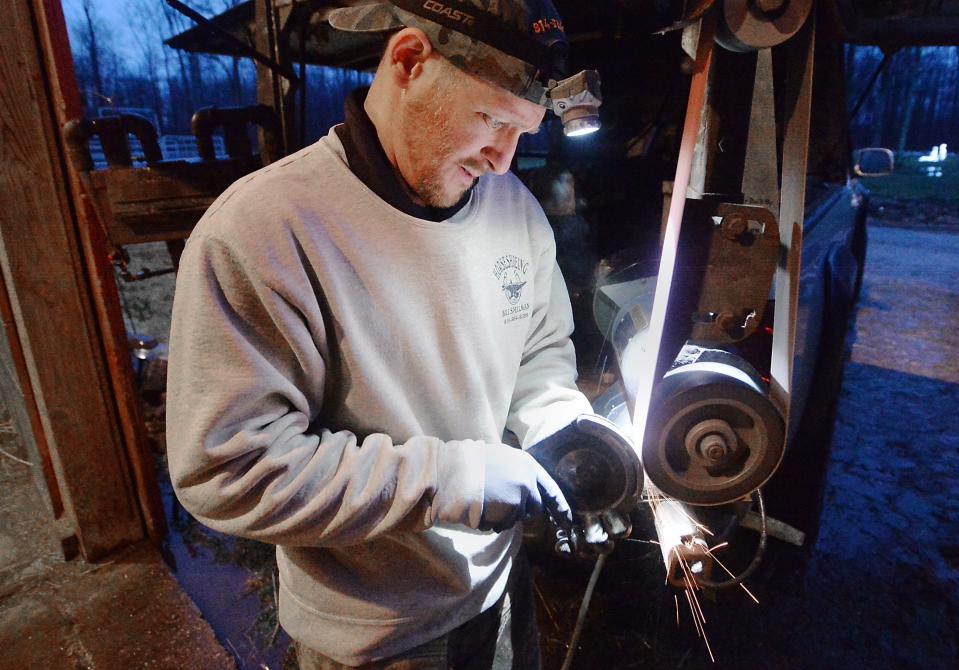
Along with dozens of horseshoes, his truck is equipped with an anvil, a gas forge, a drill press, a belt sander and a welder. Spellman is able to make things like custom corrective shoes for Ridge, or in some cases, work on the fly with veterinarians.
Spellman said he's constantly discovering new things about his profession.
"I'm always learning something," Spellman said. "And I like to be out at all these farms and meeting all these people, different animals. I’m a pretty social person so it fits me perfectly," Spellman said.
Baylee DeMuth can be reached at 814-450-3425 or bdemuth@timesnews.com. Follow her on Twitter@BayleeDeMuth.
This article originally appeared on Erie Times-News: North East farrier trims, shoes horse hooves using custom-built truck

